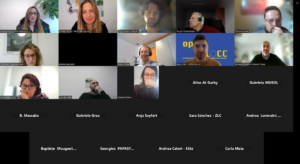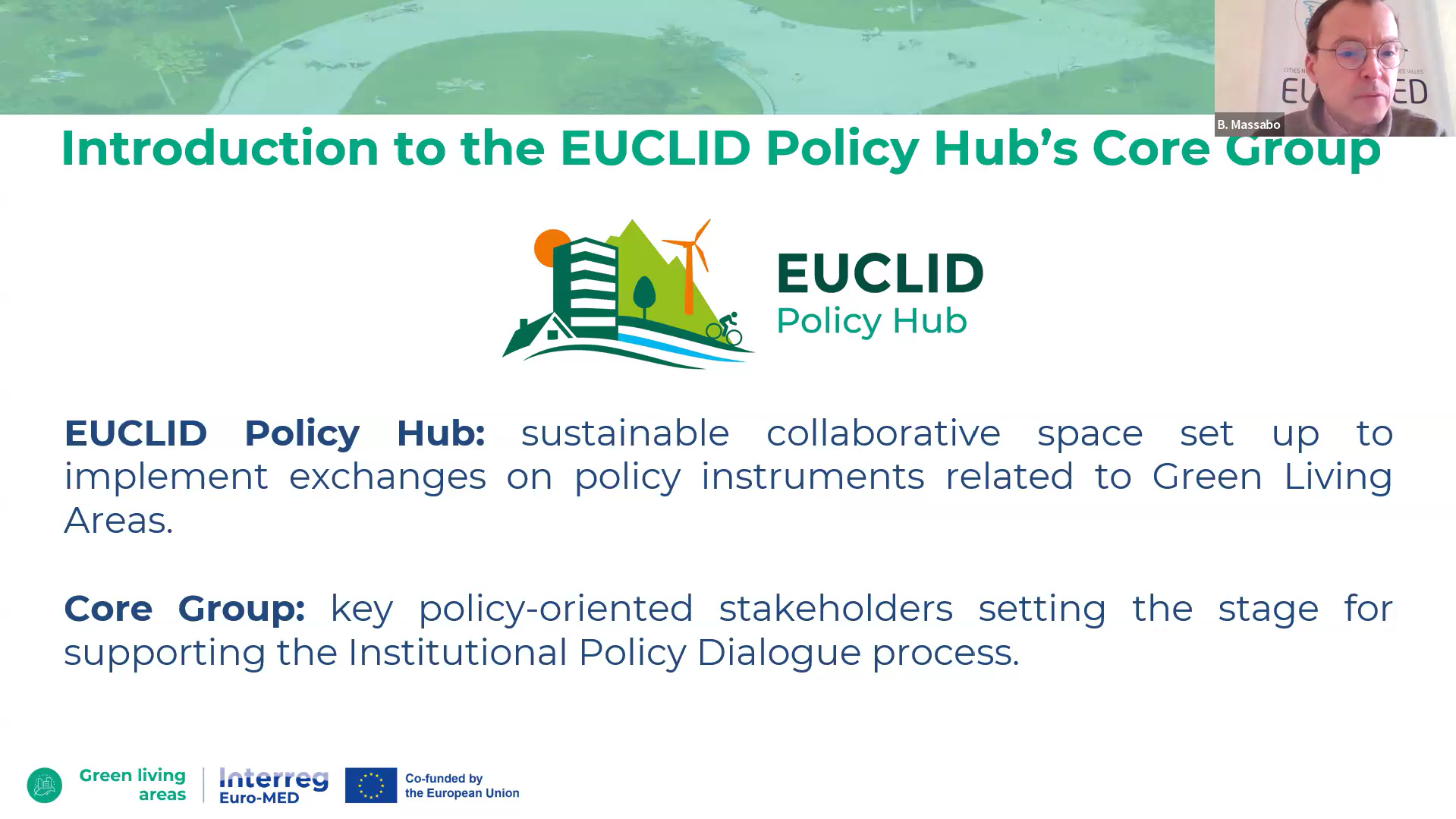The Green Living Areas (GLA) Mission convened on 27 February for its Online Thematic Working Groups (TWGs) focusing on policy to advance discussions on key policy instruments and strategies for sustainable urban development, energy transition, and mobility in the Euro-Mediterranean region
The meeting built upon the outcomes of the 1st Institutional Policy Dialogue, emphasising policy-oriented results and stakeholder collaboration.
The minutes of the event—which you can read fully HERE—offer insights into the results of the 1st Institutional Policy Dialogue (and corresponding published policy briefs), the roadmap for 2025 and 2nd Institutional Policy Dialogue, as well as conclusions from the parallel discussions from the following three Thematic Working Groups:
- Green Energy Systems,
- Green & Resilient Territorial Planning,
- Green Mobility.
On this occasion, there were no dedicated discussions for the Thematic Working Groups on Financing and Community Engagement, though the topics were addressed in a cross-cutting manner in the three TWGs listed above.
Main structure of the session
The event kicked off with the presentation of the main results from the 1st Institutional Policy Dialogue, held in October 2024 in Brussels, for the policy instruments presented, each tackling specific sustainability challenges and opportunities.
Green Living Areas partners offered insights on the policy instruments extensively discussed during the event, presenting the main results in the form of different policy briefs, available for consultation, namely:
- Sustainable urban logistics plan (SULP) of Bologna as a model for greener freight mobility in the Mediterranean
- Enhancing the superblock policy: recommendations for adaptability through a territorial approach
- Enhancing the GR-Eco islands initiative: recommendations for a cleaner energy transition
 As participants were split according to TWG, discussions followed a common structure, focusing on status, challenges, and barriers in the development and implementation of policy-related deliverables. The main themes that emerged included technical difficulties due to varying levels of expertise within teams, funding constraints, and difficulties in engaging stakeholders and policy-makers. Participants emphasised the need for clearer regulatory frameworks, enhanced financial support,
As participants were split according to TWG, discussions followed a common structure, focusing on status, challenges, and barriers in the development and implementation of policy-related deliverables. The main themes that emerged included technical difficulties due to varying levels of expertise within teams, funding constraints, and difficulties in engaging stakeholders and policy-makers. Participants emphasised the need for clearer regulatory frameworks, enhanced financial support,
and improved advocacy strategies to ensure successful policy integration.
Main takeaways
Thanks to each TWG, relevant insights were outlined. Here are some takeaways:
- Status of policy-related deliverables: thematic projects are developing their policy-related deliverables but are facing challenges related to regulatory and administrative barriers.
- Financing challenges and opportunities: even though innovative financial instruments are gaining growing interest from stakeholders, traditional funding sources such as municipal budgets and EU/national grants remain dominant. Regulatory clarity and stability both at EU and national levels are seen as essential in supporting sustainable financing.
- Barriers to policy implementation: weak institutional commitment and limited networking were identified as key obstacles.
- Community engagement challenges: lack of time and resources is a common struggle. Additionally, a general resistance towards change, together with limited trust in initiatives and difficulties in aligning diverse stakeholder interests, contribute to making community engagement difficult to achieve.
What’s next? The Second Institutional Policy Dialogue is on the way!
This session was the first step in preparing the second Institutional Policy Dialogue, which will be held on 15-16 October 2025 in Brussels, back-to-back with the European Week of Regions and Cities.
To strengthen these exchanges, the intention is to mobilise, alongside the policy-oriented partners and associated partners of the Thematic Projects, key Euro-Mediterranean stakeholders to form a Core Group. This Core Group will be able to bring its expertise to policy discussions and to benefit from the results of the Thematic Projects. The first Core Group meeting is scheduled for 4 April 2025.
Stay tuned for the updates to come!


